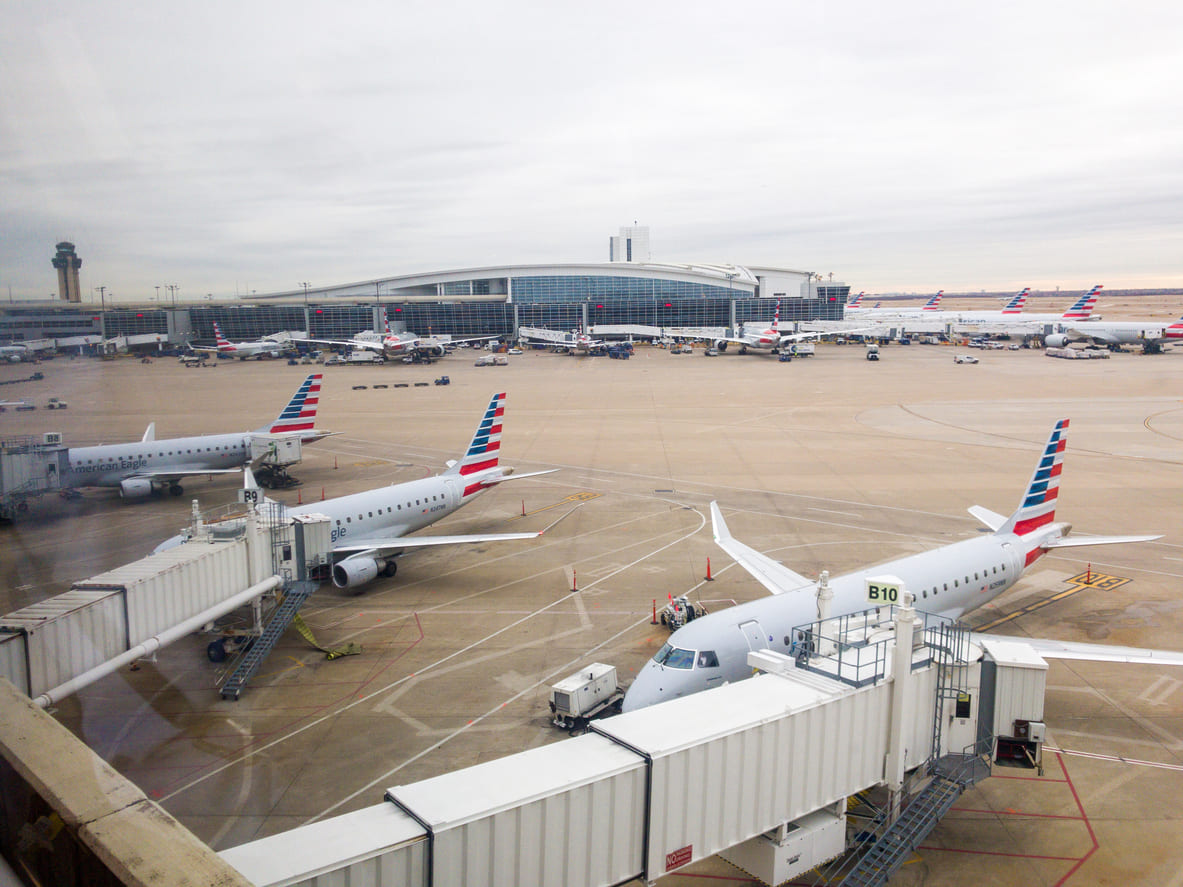| Dallas Fort Worth International Airport |
|---|
| Country: | United States |
| State: | Texas |
| IATA Code: | DFW |
| Elevation: | 185m |
| Current time: |
19:54:11 Thu, 7 Aug 2025
|
Dallas Fort Worth International Airport (DFW), located between Dallas and Fort Worth, Texas, is one of the busiest airports in the world. Serving as a significant hub for domestic and international flights, it connects millions of passengers annually to destinations worldwide.
Dallas Fort Worth International Airport: A Global Aviation Giant
Dallas Fort Worth International Airport (DFW), located between the cities of Dallas and Fort Worth in Texas, opened in 1974 as a solution to growing air travel demands in the region. Designed to replace multiple smaller airports, DFW was envisioned as a hub for seamless connectivity, offering modern infrastructure and expansive facilities. Over the decades, it has grown to become one of the largest and busiest airports in the world. With its innovative design and strategic location, DFW has remained at the forefront of global aviation, continually expanding its services and infrastructure to accommodate millions of passengers annually.

Connecting North Texas and Beyond
DFW Airport is perfectly situated to serve the Dallas-Fort Worth metroplex and surrounding areas, including cities such as Arlington, Irving, and Grapevine. Its central location within the United States makes it an ideal hub for both domestic and international flights. The airport's vast network includes connections to hundreds of destinations worldwide, enabling seamless travel for both residents and visitors. With its five terminals and a sophisticated transportation system, DFW ensures a smooth experience for passengers traveling to and from nearby cities and towns.
A Catalyst for Growth and Connectivity
The importance of DFW Airport goes far beyond transportation. It serves as a vital economic engine for the region, generating billions of dollars annually and supporting hundreds of thousands of jobs in aviation, logistics, hospitality, and related industries. The airport facilitates trade and commerce by enabling efficient cargo transport, making it a key player in global supply chains. Additionally, DFW's passenger services attract millions of tourists and business travelers, boosting the local economy and supporting cultural and entertainment industries in North Texas.
DFW's impact extends to its role as a hub for innovation and sustainability. With a focus on modernizing its facilities and implementing green initiatives, the airport has earned recognition for its commitment to environmental responsibility. Its operations enhance the quality of life for residents by fostering economic opportunities, connecting the region to the world, and offering unparalleled travel convenience.
Dallas Fort Worth International Airport stands as a testament to the power of strategic vision and innovation. From its beginnings as a regional hub to its current status as a global aviation leader, DFW continues to shape the future of air travel. Its legacy of connectivity, economic impact, and forward-thinking development ensures that it remains an indispensable part of the Dallas-Fort Worth metroplex and a symbol of Texas' dynamic growth.
Nearby Airports
- Dallas Love Field, DAL (About 18 km)
- Fort Worth Alliance Airport, AFW (About 28 km)
- Fort Worth Meacham International Airport, FTW (About 31 km)
- NAS Fort Worth JRB / Carswell Field, FWH (About 40 km)
- Waco Regional Airport, ACT (About 144 km)